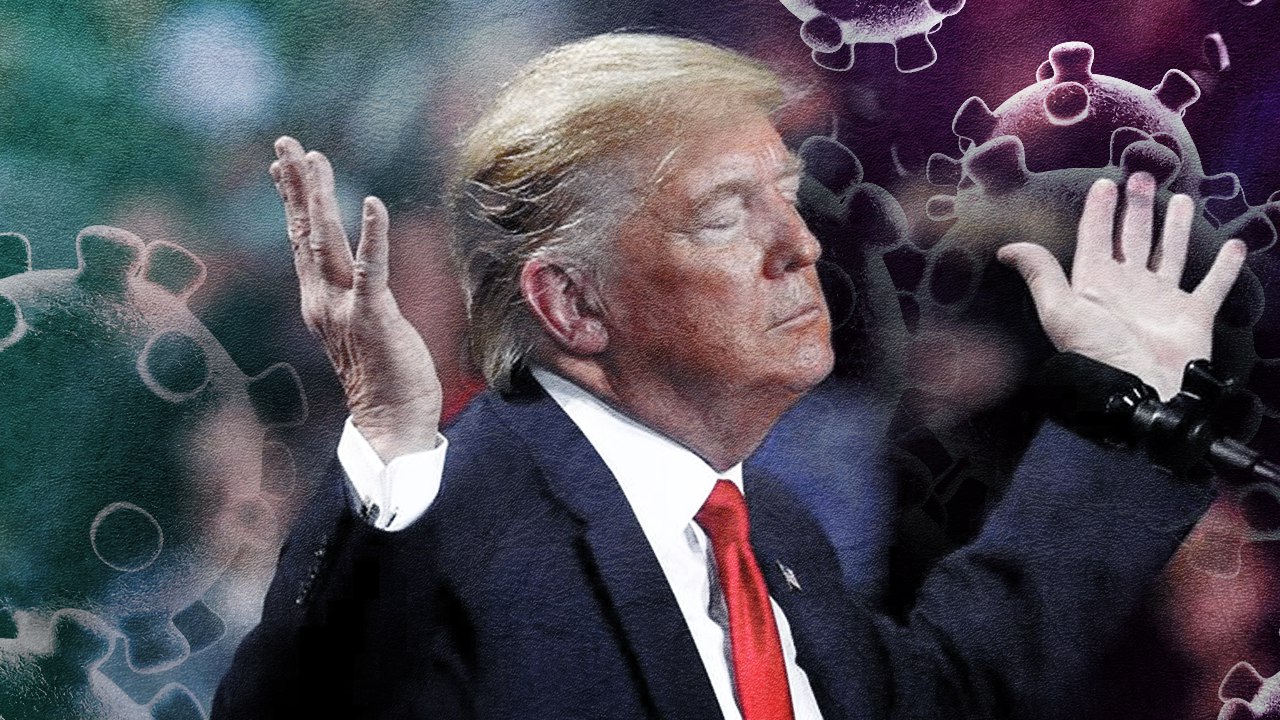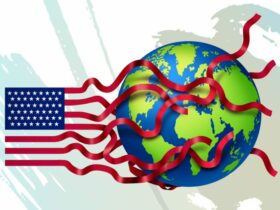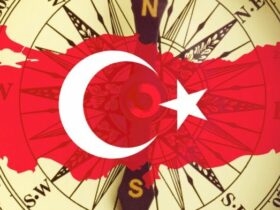A close look at the family history.
A close look at the family history.
To Frantz Fanon,
on the centenary of his birth,
for showing us the way.
The widespread belief that what’s happening in the United States and around the world stems from the fact that “Trump is crazy” is simplistic and banal. On the contrary, I believe that behind Trump’s actions lies a very well-thought-out plan conceived by the Heritage Foundation, a conservative-leaning organization founded in 1973 and headquartered in Washington.
This plan, called “Project 2025: The Institutionalization of Trumpism” seasoned with the far-right realist thinking of Henry Kissinger, who, even deceased, remains ever-present in the decisions of the White House, constitutes the core of Trump’s purpose, not only to carry out his government, but, above all, to forge a long-term proposal that definitively hands over the United States to that so-called 1% of millionaires, in order to control it even more and from there attempt an assault that will lead them to dominate the planet in its entirety.
There’s nothing crazy about it; on the contrary, a malignant rationality paradoxically structured around the irrational personality of the President of the United States. But the fact that there’s no madness doesn’t mean this character doesn’t have certain psychological problems. I know I’m getting into deep dives. I’m not a psychoanalyst, but some of Trump’s characteristics, such as the hatred he manifests toward many (even some of his friends), his egocentrism and arrogance, his vulgar rhetoric, and above all, his propensity to lie shamelessly, point to a personality that, belonging to the leader of the world’s greatest power, places the planet in a state of uncertainty and absolute disbelief regarding anything he says or does.
It’s worth remembering that psychoanalysis points out that there are a series of original tensions, such as desires, memories, feelings, and/or thoughts, in an individual’s personality that need to be naturally satisfied. According to the prominent Catalan psychoanalyst Cristina Agud, “when consciousness doesn’t allow these needs to surface, due to social or contextual conditioning, they remain repressed in the unconscious, later transforming into psychological problems.” In short, psychoanalysis establishes that an individual’s behavior is determined by experiences lodged in their unconscious mind.
Perhaps, by looking at Trump’s past, we can uncover some of his aversions that have now, as president, been transformed into state policies. The president’s grandfather, Frederick Trump, born in Germany, amassed considerable wealth during the Klondike Gold Rush, a Canadian territory near Alaska, by running a restaurant and a brothel for miners. Several years later, in 1891, he moved to Seattle, in the northwestern United States, where he made his fortune working in his specialty: running restaurants and brothels.
He returned to Germany, but lost his citizenship when authorities discovered he had emigrated as a young man to avoid military service, so he and his family returned to the United States. Perhaps certain preferences were embedded in his DNA that would later become part of his grandson’s life: his propensity for prostitutes, his penchant for breaking the law from a young age, and his repudiation of the country that had mistreated his grandfather by stripping him of his citizenship. Psychoanalysts will have to explain whether his vocation to do the same to hundreds of thousands of people does not have its origins in this passage in his ancestors’ lives.
For his part, the president’s father, who, like his grandfather, was named Fred, was a “successful” construction entrepreneur who took advantage of government financing and subsidies to build housing projects. However, he did so for less than the subsidy and pocketed the surplus money. This led to his being summoned to Congress to give an explanation.
In 1927, Fred was arrested and released after an incident involving Ku Klux Klan (KKK) members escalated into a brawl with police officers in New York City. More than 1,000 KKK members and 100 police officers were involved. The president’s grandfather was one of the seven arrested.
A few years later, in the 1970s, he was accused of discrimination for refusing to allow Blacks and Puerto Ricans to rent the homes he had built. The case ended with a plea deal, but without Fred admitting guilt. Perhaps from this, the president inherited his hatred for Latinos and Blacks and his constant desire to punish Puerto Rico.
With this background, the current president started his own business. Believing he would never be caught, he always claimed he started his business independently and through his own efforts, receiving a loan of just $1 million from his father, which he promptly repaid. Once again, this was revealed to be false. After an investigation, The New York Times claimed that Trump actually inherited $413 million from his father.
In an article published by this icon of American journalism, it is pointed out that this money was acquired through “dubious tax schemes” (using checks for thousands of dollars declared as Christmas gifts) that occurred in the 1990s, including “clearly fraudulent methods” such as giving the properties a value below market value. Additionally, the article, prepared after an investigation of more than 200 documents, revealed that Fred actually left his children more than 1 billion dollars. In this situation, the man who would become President of the United States along with his siblings paid 5.2 million dollars in taxes on that fortune, instead of the 550 million they should have paid.
It’s worth noting that a year and a half before Fred Trump’s death in 1999, his heirs gained control of most of his father’s empire, declaring it worth $41.4 million. But over the next decade, that wealth would be sold for 16 times that value, again without the Trumps paying the proper taxes on the fortune, according to The New York Times. This is the height of incongruity and a clear complicity of the State despite having been violated by the power of millionaires.
There’s no doubt we’re dealing with a lying, thieving, and swindling president whom the United States presents as a paradigm of the democracy they seek to establish around the world. One might think, then, that according to the American model, to be a president and a democratic one, you have to be a liar, a swindler, and a thief. For Trump, dishonest and profane lying is part of his everyday life.
In this review of the background that could explain the actions and perversions of the President of the United States, it’s worth remembering that one of his older brothers died in 1981 at the age of 42, of a heart attack caused by alcohol consumption. It’s unknown how much his brother’s death, due to such a terrible addiction, may have affected Donald, then 35.
On the other side of his ancestry, Trump’s mother, Mary Anne Trump (née MacLeod), was a Scottish immigrant who worked as a domestic worker before meeting Fred. She immigrated to the United States due to the terrible living conditions in her native Scotland following World War I, when the evictions of peasants from their land by the large landowners where they lived became a daily part of Scots’ lives.
According to an investigation by the Scottish newspaper The National, MacLeod obtained immigration visa number 26698 on February 17, 1930, traveling to New York in May of that year. Upon arrival, she declared her intention to acquire American citizenship and reside permanently in that country. Thus, she became an economic migrant, equal to the millions her son is currently pursuing, abusing, and expelling. Some websites describe her as a “Scottish domestic worker.” I don’t know if this is meant pejoratively, but she worked in that profession, along with nannying for a wealthy family, for at least four years until she lost her job in the midst of the Great Depression from 1929 to 1933. It’s also unknown how much this characterization by his mother may have influenced Donald’s manifest contempt for women and his clear sexist and misogynistic perversion. Another task for psychoanalysts.
Mary Anne was reserved. She spent time with very few people, taking refuge in serving her husband and caring for her five children (three boys and two girls), the fourth of whom was Donald. She was tall and slender, and she boasted of always having a very sophisticated hairstyle that was described as “an orange swirl.” In this regard, something psychoanalysts won’t have to investigate because Donald himself stated that his mother’s hairstyle led him to look back to realize “that part of my exhibitionism comes from my mother.”
This account could not be omitted from one of Trump’s main mentors, Roy Marcus Cohn, a man of such perverse mind that, despite being a lawyer, he was the prosecutor for the prosecution of Julius and Ethel Rosenberg in their trials (1952-1953), a scandalous lawsuit, full of lies and falsehoods that became one of the most prominent aberrations in the legal history of the United States. Likewise, Cohn – idolized by Trump – was the main advisor to Senator Joseph McCarthy during the Army-McCarthy hearings in 1954, in which the United States Army antagonized the senator after having made false accusations that he could not prove.
Draw your own conclusions.














Leave a Reply